Why does Britain – and indeed every country – like to mythologise its past?
Why are we so fixated by our triumphant past and has it helped or hindered us? Has this hankering after a British ‘golden age’ held us back? James Rampton talks to Al Murray about our view of history

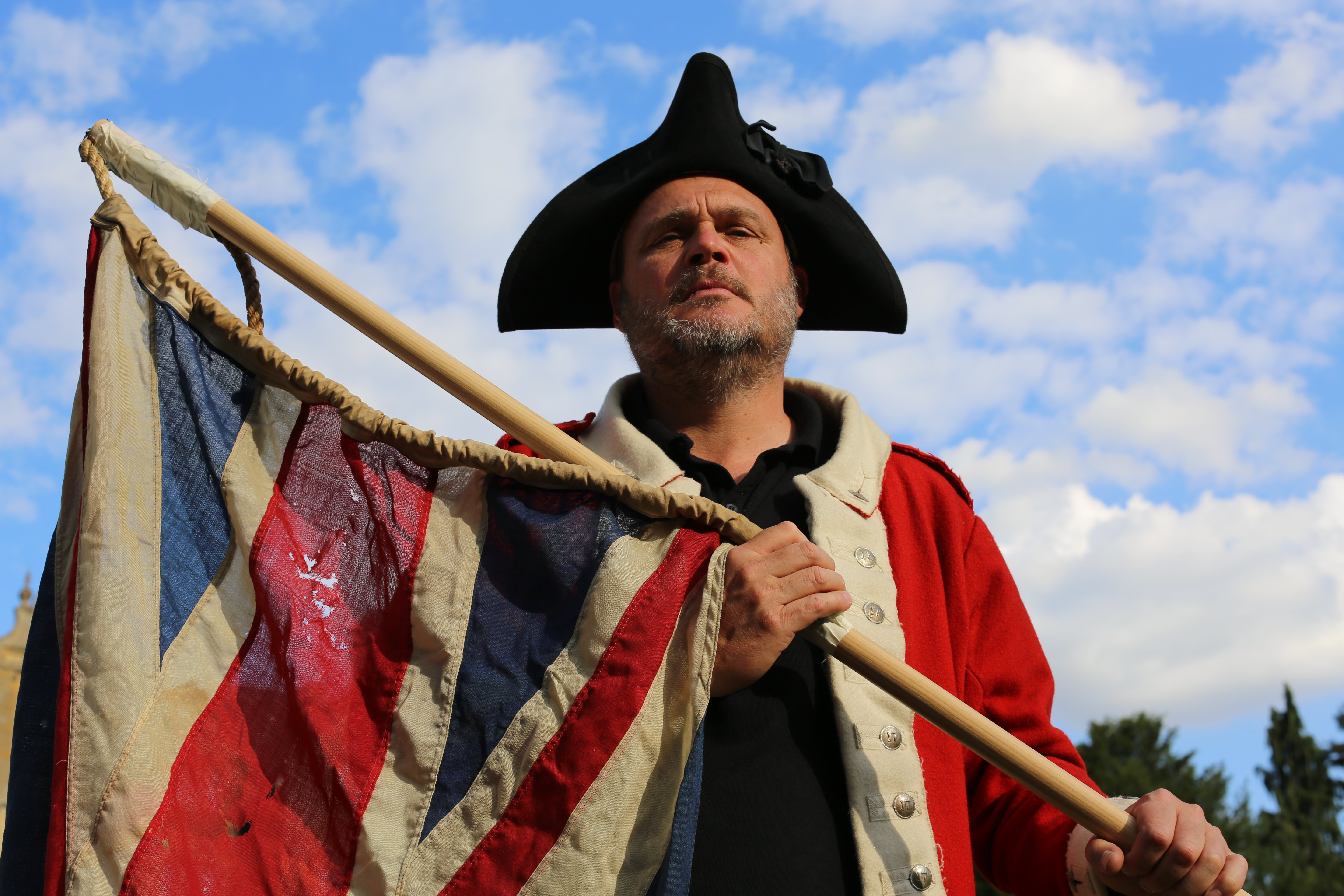
Carrying a mighty sword, the Pub Landlord is sitting astride a gigantic green missile in front of an enormous Union Jack and two hefty cannons. He is the epitome of over-the-top jingoism. In typically bombastic fashion, he declares: “We, the Brits, have an untouchable track record when it comes to international punch-ups. Why, we haven’t lost a war in over 1,000 years.”
He continues in his trademark vainglorious style: “This country is currently in the undefeated World War Champion of the World, fighting at all weights. We have a proud history of defeating all comers. Why, we even had a war against the French that lasted One Hundred Years, the Hundred Years’ War, and the reason it lasted a century is that we were enjoying winning it so much, we spun it out for the full ton.
“The Germans had two cracks at the world title, which you have to respect, but they came up short. The Americans think they defeated us, whereas what we were actually doing was dropping them before they became too much trouble – and look at what an excellent decision that was. A victory no doubt, whichever way you look at it.”
The Pub Landlord is, of course, a satire, a comedic figure described by his alter ego Al Murray as a “know-all, know-nothing blowhard who knows the answer to every question even though he hasn’t been asked any of them”.
Britain’s innate military superiority has been reinforced by numerous patriotic war films ... the sorts of movies that as children we were forced to sit through on rainy afternoons
But like all the best satire, the Pub Landlord resides uncomfortably close to the truth. How often have you been trapped in a saloon bar listening to some pub bore bang on all about how we Brits are invincible on the battlefield? That impression of Britain’s innate military superiority has been reinforced by numerous patriotic war films. These are the sorts of movies that as children we were all forced to sit through on a rainy Bank Holiday Monday afternoon.
In his absorbing new six-part series, Why Do the Brits Win Every War?, Murray, the Pub Landlord’s rather more intelligent creator, explores our obsession with our glorious military past.
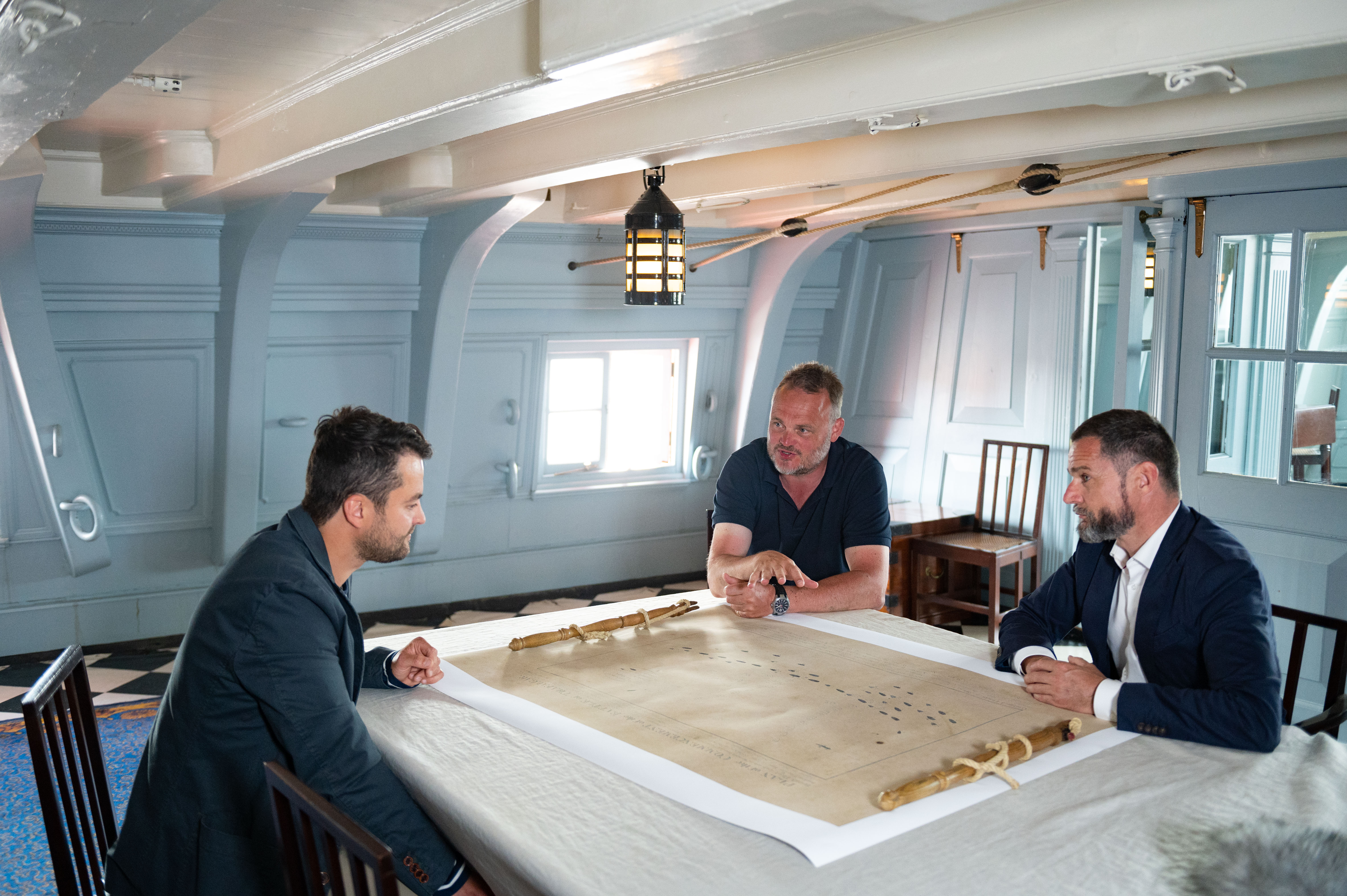
The comedian, who is an Oxford history graduate, investigates whether Britain’s much-vaunted wartime record is as stunning as we’d like to think it is. He examines how regular harking back to Britain’s glory days is regarded by our neighbours. He also poses a series of intriguing questions. Is our military history all it’s cracked up to be? Are our battlefield victories down to good old-fashioned British pluck or good old-fashioned luck? Why are we so fixated by our triumphant past and has it helped or hindered us? Has this hankering after a “golden age of Britain” held us back as a nation? And in studying our military history, how do we separate fact from fiction?
In each episode of Why Do the Brits Win Every War?, Murray addresses Britain’s relations with a different one-time military adversary. He mines our centuries-old enmity with France and Germany, and tackles those who have occupied Britain before, as he sees it, being ejected without ceremony.
He reflects on “the fairest of all fair-weather friends”, the Americans, before scrutinising the longest-standing internal British rivalry of them all, Scotland vs England, a conflict that continues to be played out in the political and sporting arenas today.

Murray, 53, is joined each week by a representative from one of our former foes, including Fred Sirieix (France), Henning Wehn (Germany), Reginald D Hunter (America), John Thomson (The Vikings), Bruno Tonioli (The Romans), and Sanjeev Kohli (Scotland).
Talking to The Independent via video link from his home in west London, Murray is as thoughtful as his alter ego is thoughtless. The presenter begins by considering why Britain – and indeed every country – likes to mythologise its own past. “If a nation is like a person and has characteristics and a personality, then it’s going to do what a person does, and forget the bad stuff and remember the good times.
“It’s going to tell itself gilded versions of what really happened because wouldn’t you rather be an underdog, wouldn’t you rather have pulled it off accidentally brilliantly, rather tell yourself, ‘Christ, we were lucky to get away with that!’?”
It is part of the human psyche that we want to think the best of ourselves and glorify our past. Murray, who over the past two years has co-presented with historian James Holland more than 400 episodes of We Have Ways of Making You Talk, a successful podcast about the Second World War, says, “that’s why some of the mythic interpretations stick like glue to people’s view of the past.
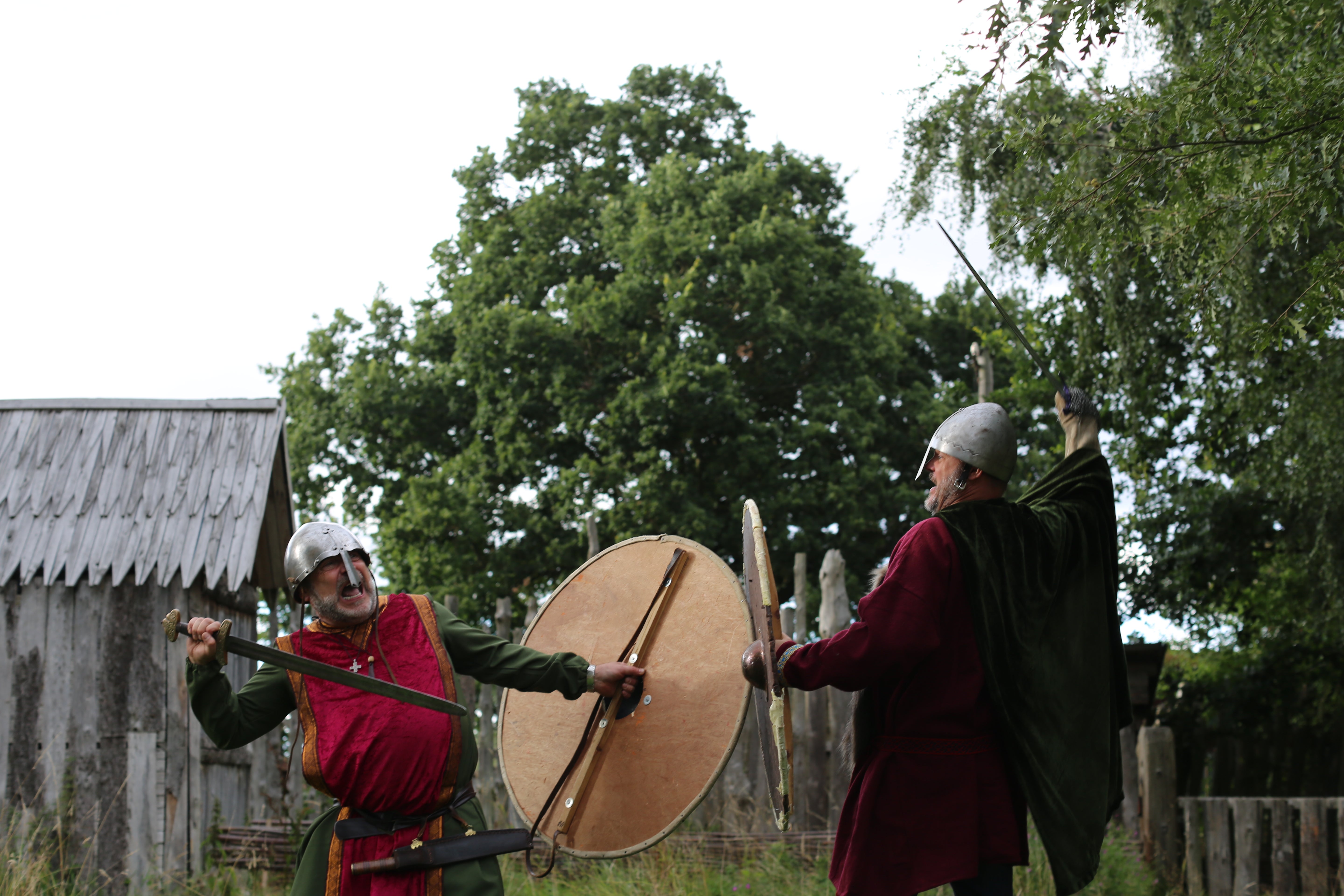
“Look, for instance, at the French attitude to La Gloire [the pride France takes in its glorious, thousand-year history]. Any stout-hearted, patriotic Brit, like the Pub Landlord, will tell you the French never win anything. But they’ve got an Arc de Triomphe, which, of course, celebrates all of Napoleon’s many triumphs. The problem is, he lost his last battle at Waterloo, which is the one you really want to win. It’s like working your way through a tournament and then losing in the final.” Which is perhaps why the Pub Landlord-esque myth of perpetual French defeats has persisted in this country.
Our steadfast belief in British military exceptionalism – which no doubt also played into the nationalistic strain in the Brexit debate – has only been bolstered by those aforementioned war movies, an uninterrupted rollcall of British triumph, stretching from The Battle of Britain to The Dam Busters.
Murray outlines why, more than 75 years after the end of the Second World War, those films remain so popular. “We still love them because there’s an un-complex moral universe in them. We all know how difficult life is. The last 18 months have illustrated how complex questions of morality can be.
“There was no grey area in the Second World War. It offers you literally blokes in black outfits. That’s why that Mitchell and Webb sketch where two Nazi soldiers ask each other ‘are we the baddies?’ is so funny because they are literally in black outfits decorated with skulls and crossbones. The moral certainties of that era are undeniable.”
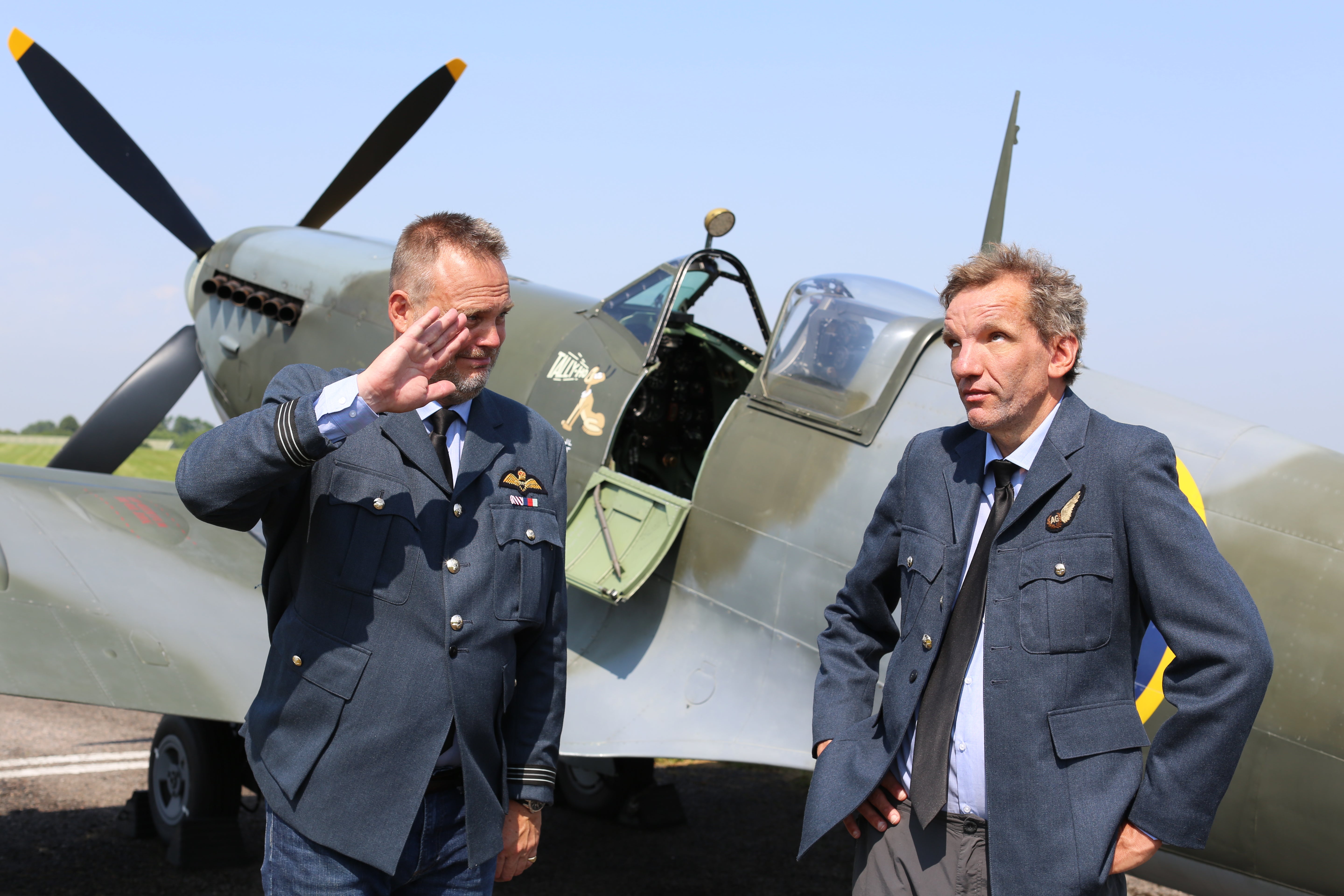
Murray, who has also presented such fascinating history documentaries as Why Does Everyone Hate The English?, Road to Berlin and Great British War Movies, goes on to explain that any nation always has two competing versions of history – one conceived in a raucous pub and the other in the leafy groves of academia.
“There are two kinds of history. There’s the history of universities, with academics pursuing their lines of inquiry, really focusing on the field they’re interested in. That is a wonderful, wonderful thing, and my bookshelves are groaning with the efforts of those people.”
And then there’s pub history. “That’s the history that’s off-reservation, that the academics can’t control, that they have a limited degree of influence over. There is an inertia surrounding historical opinion, and a lot of stuff in the public consciousness never moves on. In pub history, everyone thinks that we won every military encounter we’ve ever had – that’s certainly what the Pub Landlord thinks!”
Murray proceeds to give an example of why these two interpretations of history shall never meet. “Look at the Second World War. That is a prime example of the history that’s off-reservation, the stuff that people talk to each other about, the stuff that people are certain happened. For instance, we see the Battle of Britain as the story of “the few”, plucky little Britain on its own against a fearsome enemy.”

However, Murray carries on: “When you push into that, it doesn’t explain what occurred. And that’s what’s interesting. Very often when you apply these mythic versions of histories to the events that occurred, they don’t really add up. So the Battle of Britain is essentially the other way round from popular mythology. It was the Germans improvising and not really not knowing what was going to happen next, while the British had figured out how they would deal with an enemy air incursion, like the one the Luftwaffe launched. It’s like a photo negative.
“So the mythic version exists, and I think that’s fascinating in itself. There are all sorts of interesting historical reasons why we think that’s our history. And then there’s what really happened, which is much more complicated than people realise. I’m here for the complication every day of the week. The thing I like is the onion peeling.”
In our culture, there are two things people know about history: the Second World War and Henry VIII and his six wives
One reason why we are stuck with an ossified view of our history is because we learn so little about the sweep and the complexity of it at school. According to Murray, “in our culture, there are two things people know about history: the Second World War and Henry VIII and his six wives.
“You saw that during the pandemic. Everyone compared it to the Blitz because they couldn’t compare it to Henry VIII. To what extent is the coronavirus like Anne Boleyn? Not very much. Before that, you saw people comparing Brexit to Henry VIII’s break with Rome.”
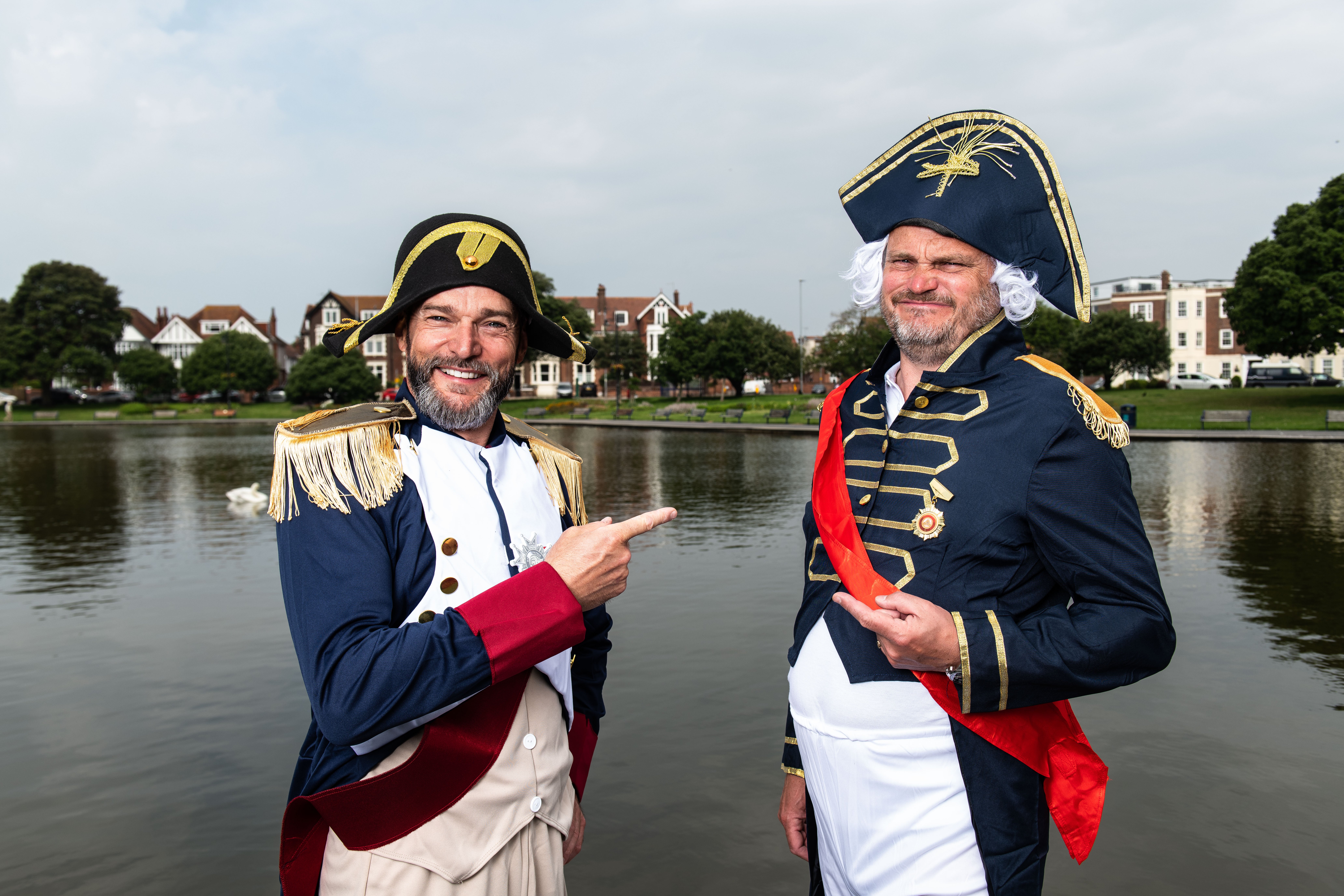
The other vital element of history, of course, is that it varies depending on who is recounting it. “Intriguingly,” Murray muses, “when we filmed the French episode, I got talking to the re-enactors about the Napoleonic Wars. It quickly emerged that the man playing the captain of the French army was a Bonapartist. More than 200 years after those events happened, he was still a Bonapartist.
“He was telling me, ‘it’s British gold and British imperialism that’s destabilising the continent of Europe. Napoleon’s absolutely right to take action to try and knock the British out and have a balance of power that puts the rest of Europe on a more even keel.’ I thought, ‘wow. First of all, he gives a toss. But secondly, to realise that viewpoint is still alive is really, really interesting’. He’s talking about it in the present tense as well, as though it’s still happening. Well, I suppose if you’re from a star 200 light years away, it is still happening!”
History can never be encapsulated in a single “authorised version” because we are generally only presented with the interpretation dictated by the victors. “You can’t pretend history isn’t written by the winners, and maybe that’s a problem,” says Murray. “You also have to think, ‘which winners?’ The Second World War is an interesting case in point because lots of people won the Second World War, such was the nature of the conflict. So they’ve all got their own version of it.”

The subjective nature of history has played a role in the recent furore surrounding statues, too. Murray emphasises that statues have always been a significant emblem of leaders’ power. “If we’d given Boris Johnson a statue when he turned 30, maybe he would have been happy with that and wouldn’t have insisted on becoming prime minister. And then, of course, we’d be able to shove it into a water feature, probably on a weekly basis.
“So this debate doesn’t surprise me. After all, the business of putting statues up is as interesting as the business of tearing them down. For instance, the history around the statue of [British slave trader] Edward Colston is just as complex and strange as any other history. Why is there a statue of him? What’s going on? Who put it up and why? But you can still see why people would want to push it into the water.”
What’s the answer, then? “I think quite clearly all statues should now be modelled with a life jacket, or water wings,” Murray laughs. “They should put some water wings on the statue of Churchill in Parliament Square. Or they should make all statues out of cork, and then you wouldn’t have a problem at all. You can’t sink cork and you can’t burn cork. It’s basically the perfect modern statue material for anyone who inevitably will become questionable in the future.
Who knows, maybe eating meat one day will finally go the way of the dodo. And then we’re all going to be viewed as barbarians by people in 200 years’ time
“I mean, we’re all going to be questionable in the future. Who knows, maybe eating meat one day will finally go the way of the dodo. And then we’re all going to be viewed as barbarians by people in 200 years’ time.”
What Murray hopes above all is that Why Do the Brits When Every War? will encourage audiences to be as passionately engaged in history as he so evidently is. “The thing I really hope people take away from the series is the fact that you don’t have to look very hard at any period of history to see how interesting and nuanced and complex it is.
“Humanity never changes. There’s never been a time where things were simple, where people all thought the same, where people weren’t as complicated as we are. We live in a complex modern world with complex modern technology and ideas. But in their time people in the past also lived in a complex modern world with complex modern technology and ideas.”
Murray continue: “When you look at Nelson’s HMS Victory now, it’s made of wood, it’s tiny, relatively speaking, and it’s sail-powered. But actually, that ship is as cutting edge for 1805 as the new aircraft carriers that this country has just bought. It’s exactly the same thing. You can extrapolate so much from any piece of technology about the society it represents.”
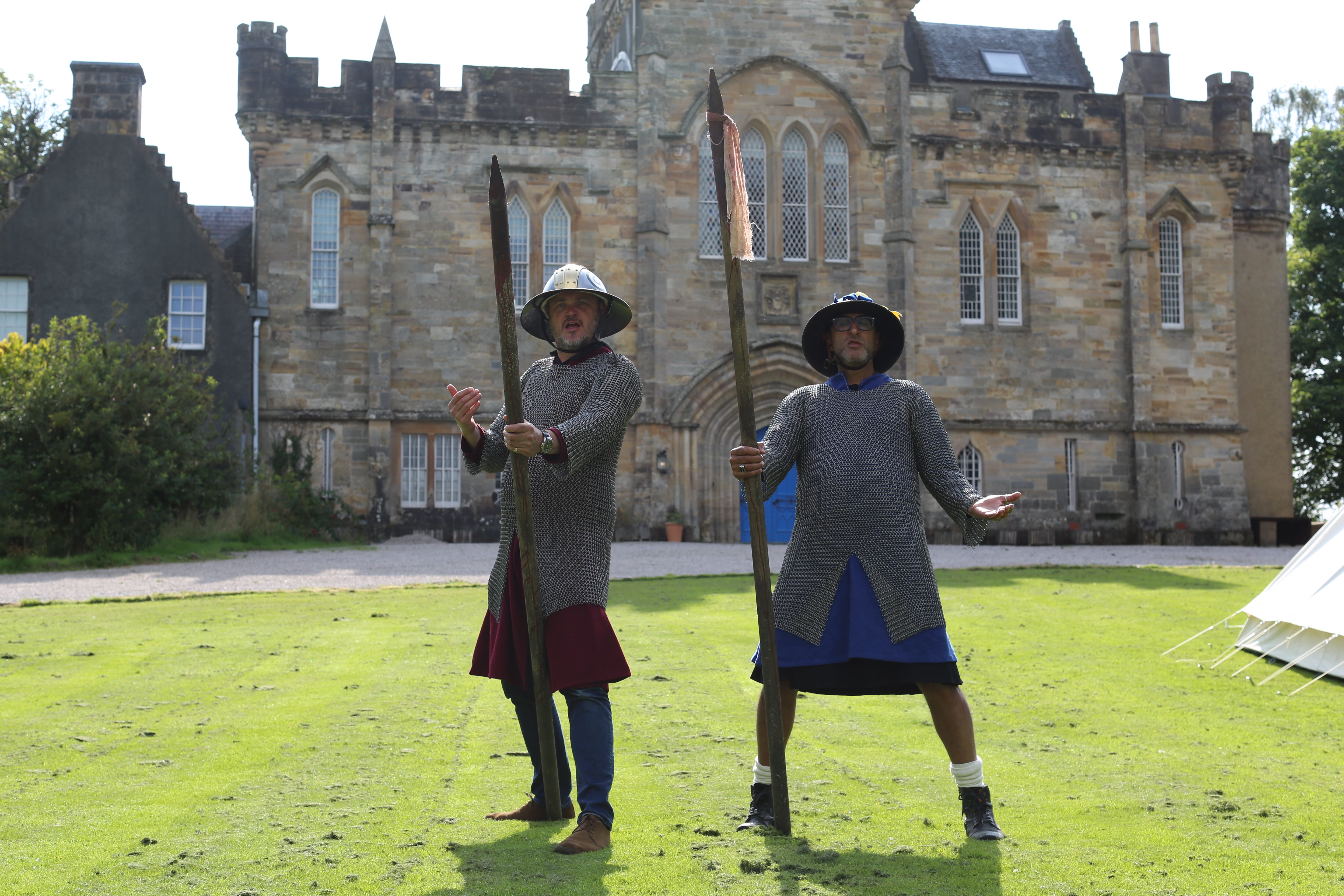
Before we part, the presenter reiterates his devotion to studying history. “A while ago on my podcast, we had Robert Harris on to talk about the V2 campaign at the end of the Second World War. He said that when people ask him why he’s interested in the Second World War, he replies, ‘well, why wouldn’t you be interested in it? It’s the most interesting thing ever’. And that is really how I feel about history. When Sky History ask me to make a programme about the Roman invasion of England, I don’t think, ‘oh God, how boring!’ I think, ‘that sounds amazing. Bring it on!’”
Finally, what does Murray think that history can teach us? He cites the example of the episode about the bloody conflict between England and Scotland in Why Do the Brits When Every War? “The England-Scotland stuff really feels like Game of Thrones. It’s people betraying each other, power players jockeying for position, and the ordinary people in the middle getting crushed and starved and trodden on from a vast height by people who actually don’t give a shit about them. That’s the politics of 700 years ago.
“I mean, what can we possibly learn from history?”
‘Why Do the Brits Win Every War? ‘goes out on Sky History on Wednesdays at 9pm






Join our commenting forum
Join thought-provoking conversations, follow other Independent readers and see their replies
Comments